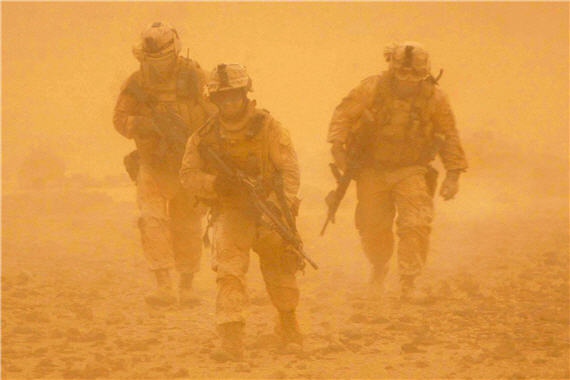The video showing Marines urinating on dead enemy bodies in Afghanistan has refocused America’s attention on the behavior of service members. We have been painfully aware of the strategic implications of this kind of action since we saw the photos from Abu Ghraib. How could something like this happen now? Something is broken.
We remember with sorrow the U.S. service members and contractors killed in combat whose bodies were desecrated by our enemies. The humiliations visited on bodies raise feelings of disgust for the enemy and empathy for our own, compounded by the pointlessness of the humiliations. It would be useful to assume that our enemies feel likewise today. To prevent this from happening again, or at least for the U.S. service members to be able to look themselves in the mirror and honestly say we did everything we possibly could to prevent it, leaders at every level must make unequivocally clear that they expect their troops’ best behavior, even in the worst circumstances.
Americans share in responsibility. Gratitude for hard work and sacrifice should not lead us to mistakenly excuse reprehensible conduct by service members. Our behavior toward the enemy is too often excused because so many Americans do not believe the enemy is worthy of respect, relying perhaps on memories of dehumanized foes in Vietnam, Korea and World War II.
Every service member goes through countless legal briefs explaining the general orders and international law forbidding desecration of dead bodies, as well as the taking of pictures and videos of the enemy. Despite this training, the Marines in the video probably did not give the wrongfulness of urinating on dead bodies consideration.
Knowledge of the law only goes so far in creating legal conduct. Character, situations, personal morals, group ethics, peer pressure, the length and number of deployments and a host of other variables contribute to service member evaluations of right and wrong. Knowing this, how can the armed forces ensure good behavior among the ranks, even when dealing with the people who are trying to kill them?
From junior noncommissioned officers to commanders at the highest levels, leaders have a credibility and influence over their troops that no outsider or subject matter expert ever can. At no level can a wink and a nod that “things happen in war” be tolerated. Clarity in expectations and orders, as well as leaders’ actions, will create a command emphasis that transforms someone capable of doing something wrong into someone who never will.
Kurt Sanger is a major in the Marine Corps, a judge advocate and is a law instructor at Marine Corps University. He deployed in 2009 as the senior legal adviser to the Afghan National Army. This essay originally appeared in the Chicago Tribune.
Image: marines-afghanistan.jpg
